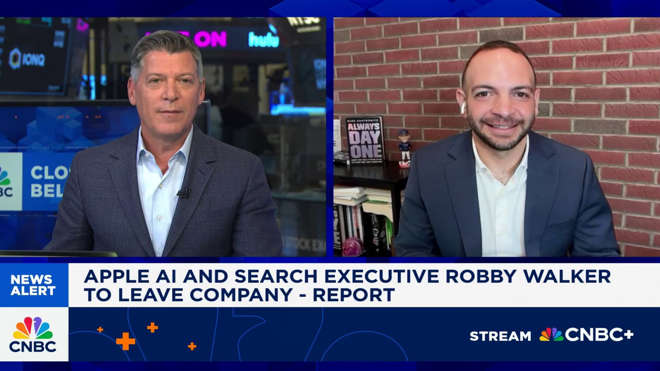Reports show many AI engineers and researchers are leaving Apple for Google OpenAI Microsoft and Meta. The exodus could slow iPhone AI features affect Apple privacy first strategy and reshape its competitive advantage in generative AI.

Introduction
Apple has long been known for tight internal teams and strong control of the Apple ecosystem. That is changing as reports highlight a notable wave of departures from Apple AI groups. Tech analyst Alex Kantrowitz described it as "amazing how many people have left Apple especially in AI divisions" which underscores a wider trend affecting generative AI breakthroughs and the race to ship AI powered features to consumers.
Apple built its strength on hardware excellence and seamless user experience. Yet artificial intelligence and machine learning advancements have become core to modern consumer platforms. While rivals moved fast to integrate AI powered features into search productivity and devices Apple kept a privacy first technology stance focused on on device processing and user data protection. That approach preserved trust but may have slowed iOS generative AI integration compared with competitors.
For everyday users the outcome affects when and how AI shows up in Apple devices. If the exodus continues consumers could see slower rollout of AI powered features such as advanced voice assistants intelligent automation for productivity and AI driven personalization in apps. Competitors delivering AI enhanced search and productivity can establish user habits that become harder to change.
Losing talent is more than a staffing issue. It can erode institutional knowledge and create openings for rivals to gain competitive advantage in AI. Former employees often bring deep knowledge about architecture and product direction which can inform competing implementations of generative models and predictive analytics in consumer services.
Apple champions privacy first technology which remains a strong consumer promise. But privacy considerations can complicate the design of generative models and personalized user experiences. The company faces trade offs between privacy first safeguards and the pace of AI driven innovation. How Apple balances those trade offs will shape its ability to deliver distinctive AI features without compromising trust.
Experts point to culture compensation and research freedom as drivers of departures. A talent driven innovation approach rewards collaboration experimentation and transparent publishing which many AI researchers value. Apple may need to adapt recruitment and retention strategies to attract top AI engineering talent while keeping its core principles intact.
To maximize visibility for this topic use concise authoritative headings and answer key user queries such as What are Apple s latest AI features and How will talent departures affect iPhone updates. Emphasize E E A T and include short FAQs to support Answer Engine Optimization and structured data for generative engines.
Apple s AI talent exodus is a strategic signal as much as a personnel challenge. The company must move quickly to retain AI engineering talent and accelerate integration of AI powered features while maintaining its privacy first credentials. If Apple can show tangible progress in next gen ML capabilities the departures may look like temporary setbacks. If not the talent shift could reshape competitive dynamics in consumer AI and influence how and when the most notable generative AI breakthroughs reach users.
Written by Pablo Carmona at Beta AI



